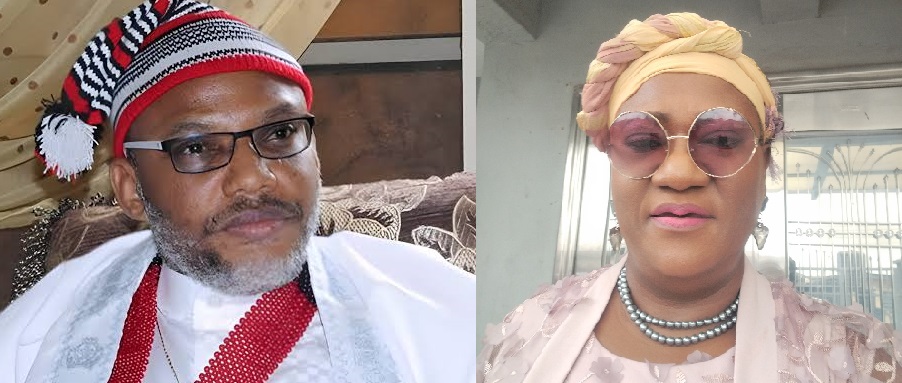
Nigeria Does Not Obey Human Rights – Lolo Nneka Nwakuna Cries Out at Abuja High Court
Abuja, Nigeria – October 24, 2024
In a powerful address at the Abuja High Court, Lolo Nneka Nwakuna delivered a scathing critique of the Nigerian government’s disregard for human rights, rule of law, and democratic accountability.
According to her, “Nigeria does not obey human rights.” Her words come at a time when many Nigerians are questioning the integrity of the judicial system, especially regarding the continued detention of Nnamdi Kanu despite several court rulings that have discharged and acquitted him.
A Nation Detached from Its People
Lolo Nwakuna’s speech painted a grim picture of a country whose leaders have become detached from the people they swore to serve. She said she arrived early at the court to show solidarity with Mazi Nnamdi Kanu and to register her disapproval of “human rights abuses, abuse of court orders, and a government that is detached from its people.”
She reminded Nigerians that the current administration has, on multiple occasions, shown open contempt for public opinion and judicial decisions. “This is a government that said on live television that no matter what people say, it will continue to do whatever it wants to do, and meant every word,” she said.
Her statement reflects the frustration of many Nigerians who have watched successive governments undermine the judiciary while using state institutions to suppress opposition voices.
Government Complicity in Violence
Nwakuna revealed that she personally toured parts of the South-East to see the situation for herself. What she found, she said, was heartbreaking and incriminating. The once-peaceful region, known for its respect for life and harmony, has been turned into a killing ground.
“It was therefore surprising that when we went to certain villages where there were killings and sacking of villages, only to discover that the Federal and State Governments are complicit in the crime, just to blackmail IPOB,” she said.
Her statement echoes reports and eyewitness accounts from several South-Eastern communities, where security forces have been accused of orchestrating attacks or turning a blind eye to violence while blaming it on IPOB to justify further militarization of the region.
According to Nwakuna, it was after witnessing these realities firsthand that she chose to support IPOB, believing that the movement’s true mission is to awaken Nigerians to the reality of “Jihad and the gradual takeover of the country by the Fulanis.”
She rallied Nigerians warning them against silence in the face of injustice, saying, “When we keep mum to human rights abuses, it becomes our turn the next time. And when we rise up to condemn it, we will not be the next victim.”
For her, standing with Nnamdi Kanu is not merely an act of solidarity but one of self-preservation. “Being here today is also a support to myself and my family,” she said, urging all Nigerians to “rise up and challenge evil.”
Her message reflects a growing national sentiment that silence has only emboldened the government to act with greater impunity.
Lolo Nwakuna also condemned the abduction of Nnamdi Kanu from Kenya, calling it “a show of shame” that has stripped Nigeria of any legal or moral right to try him or any of his associates.
She argued that a government that violates international law by kidnapping a man from another country cannot turn around and claim the legitimacy to prosecute him. She added that the same system has repeatedly ignored court orders in Nigeria that have discharged and acquitted Kanu.
“Who will obey the court order now in Nigeria?” she asked. “Those who are supposed to keep the law cannot be the ones breaking it and still expect ordinary Nigerians to obey. By doing this, the government is telling Nigerians that we are slaves.”
A Nation at a Crossroads
Her remarks underscore a broader reality; that Nigeria’s political system has long slide toward lawlessness. She warned that politicians who once sought votes from the people now cross-carpet to the ruling party, the All Progressives Congress (APC), as a sign that they no longer need public consent. “It is a signal to inform us that they don’t need our votes, and elections can be rigged and it stays,” she said.
Her call for the President and the Governor of Imo State to focus on governance rather than political power games struck a chord: “After election comes governance; this is time for them to govern us,” she said pointedly.
Lolo Nneka Nwakuna’s statement at the Abuja High Court is not just an indictment of a government but a moral awakening for Nigerians. Her message reinforces the growing view that the rule of law has collapsed under a regime that rewards impunity and punishes truth-telling.